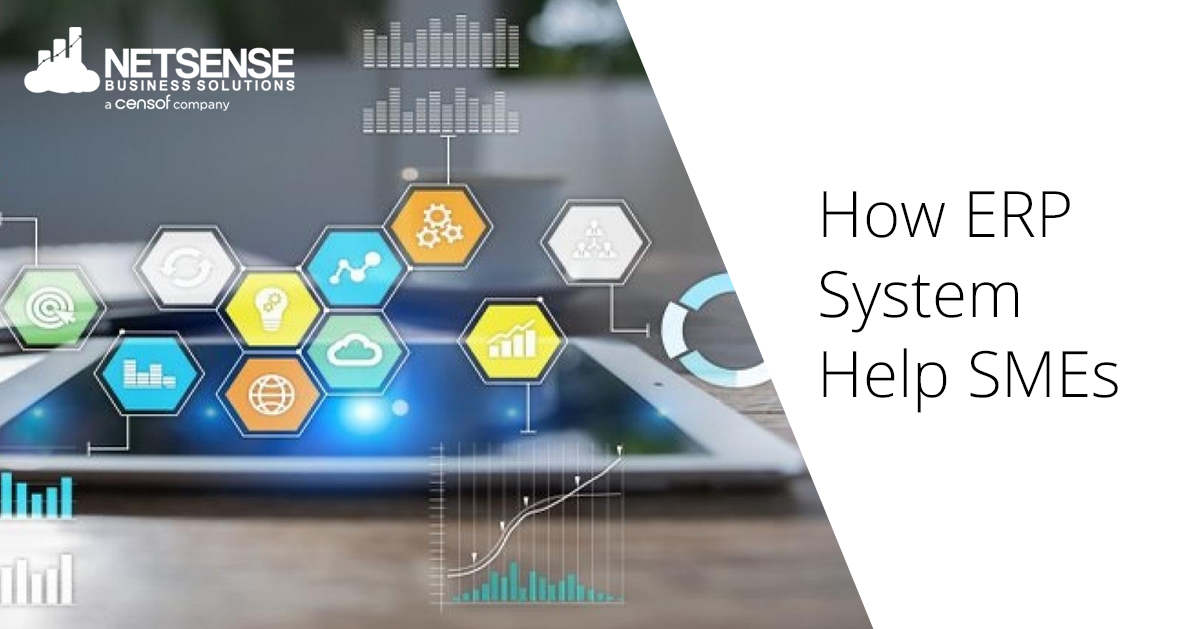The path of business success is packed with plenty of rewards and potential pitfalls. According to the Oxford Economics survey, 64% of Small and Medium Enterprises (SMEs) are leveraging technology to outperform their peers, everything from mobile-friendly software to cloud computing. This means, if you don’t take the necessary steps to stay ahead of the competition, you will lose a big piece of cake.
It is challenging to find a way to attain actionable insights and beat your competitors. In order to add value to your business, you can implement an advanced Enterprise Resource Planning (ERP) system to manage and automate a variety of operations across all departments with more accuracy and real-time updates.
Let’s take a closer look at what ERP system exactly is and how it can help small businesses to grow to understand whether or not it is a valuable investment.
What is ERP Software?
Enterprise Resource Planning (ERP) system is designed across a single, well-defined data structure that can help organisations to manage day-to-day operations such as accounting, inventory management, production, project management, risk management, and supply chain workflows. It is a full-fledged software that can help to forecast, plan, budget, and report on a company’s financial results.
You can integrate it with a spectrum of business processes and enable the flow of information between them. It accumulates transactional data from various sources, which eradicates data duplication and ensures data integrity with a single source of truth.
How ERP System Ensures Better Performance and Results?
The ERP system is equipped with manufacturing and planning modules that offer optimum support to a range of operations from start to finish. SMEs generally experience funding restrictions and lack of technical support, but honestly, these reasons were valid back then, but not any longer. Thanks to the latest technological advancements, there are many practical solutions available more than ever.
Here are some advantages of implementing an ERP system:
- Simplify Workflow and Visibility
Managing multiple worksites took a lot of effort and time. Moreover, if there was an issue with one of the contractors, it was so frustrating to make endless calls and site visits. Luckily, the ERP system can transform workflow visibility. Users can simply operate a common database from ERP to get regular real-time updates about production, distribution, and sales. - Business Intelligence and Data Analytics
ERP system uses Business Intelligence (BI) tools to offer data collection, analytics, and reporting sources. Users can also evaluate data in real-time and use historical data to make necessary changes to the production runs easily. - Scheduling Solutions
When workers are assigned tasks in shifts, or when inventory is ready to be delivered and when your warehouses undergo maintenance, scheduling tools in ERP software could be very helpful. It allows effective collaboration among the workforce so that all the members and supply chain partners can stay on the same page. - Quick Decision Making
If you want to keep up with competitors and satisfy more and more customers, you cannot make delays in your deliveries. Fast decision-making is a paramount factor and that’s where ERP system comes into play. With real-time information, decreased errors, and streamlined operations, decisions can be made quickly without any disruptions and obstacles. - Risk Management and Data Security
Preventing your private information from fraudulent practices could be a big challenge. ERP comes with real-time risk management tools that perform automated audits and monitors frauds for additional data security. A single ERP system keeps all your crucial documentation and interactions in one place.
Take Advantage of ERP Capabilities Now!
As a multitude of enterprise data and workflows are integrated into Enterprise Resource Planning (ERP) system, SMEs can align separate departments smoothly, resulting in substantial bottom-line savings and improved business insights. With ERP delivered as a standalone or integrated solution in the cloud, your business will be future-ready and overtake change.
If you’re having a hard time managing your business processes and would like to know more about ERP software, get in touch with our experts today. We’d love to point you in the right direction.
